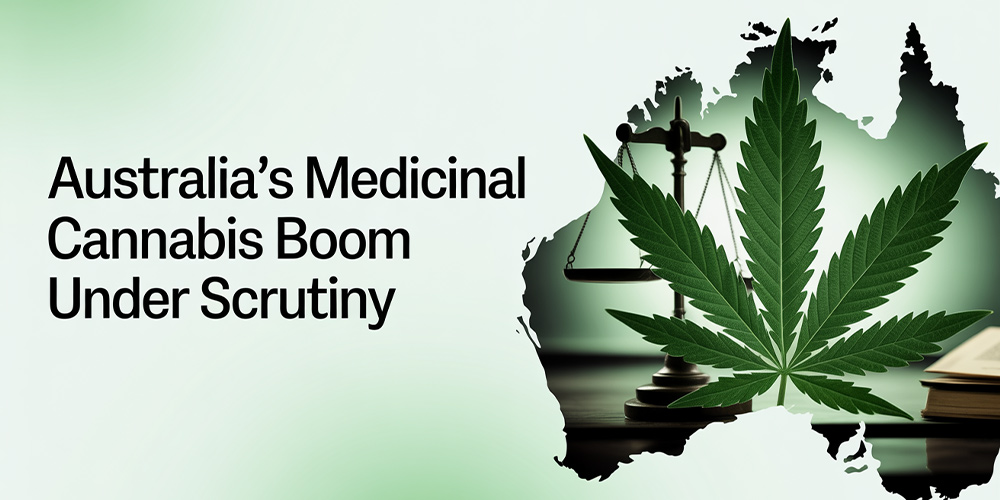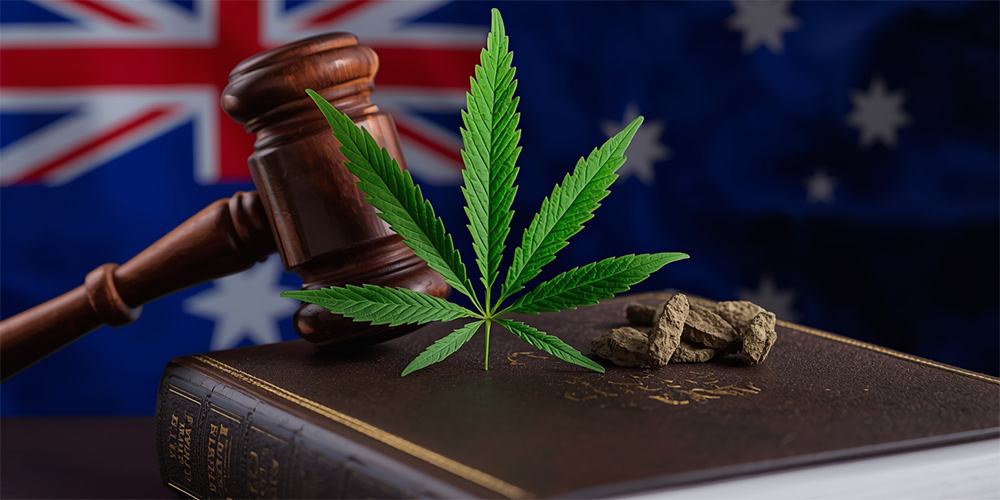
Home » Australia’s Medicinal Cannabis Boom Faces Scrutiny Over Over-Prescription and Regulatory Gaps
Australia’s Medicinal Cannabis Boom Faces Scrutiny Over Over-Prescription and Regulatory Gaps
Australia’s medicinal cannabis industry, once hailed as a progressive step in healthcare innovation, is now under intense scrutiny. Regulators, doctors, and public health advocates are voicing growing concerns about over-prescription of high-THC cannabis products, potential misuse of regulatory loopholes, and whether profit motives are eclipsing patient safety.
A Rapid Rise in Prescriptions
In less than a decade since legalisation in 2016, Australia has emerged as one of the fastest-growing medicinal cannabis markets globally. The Therapeutic Goods Administration (TGA) has approved hundreds of thousands of prescriptions, with more than 300,000 patients accessing cannabis products under the Special Access Scheme (SAS) and Authorised Prescriber Scheme.
But recent figures revealed a startling trend: eight doctors issued more than 10,000 cannabis prescriptions each over just six months. Critics argue this pattern suggests industrial-scale prescribing that resembles a “pill mill” model, raising alarms about patient welfare and the integrity of the medicinal system.

Regulatory Concerns From Health Authorities
The Australian Health Practitioner Regulation Agency (Ahpra) and the Australian Medical Association (AMA) are calling for stronger oversight. Current rules allow physicians broad discretion in prescribing unapproved cannabis products. While intended to improve access for patients with chronic pain, anxiety, and other conditions, critics say the system lacks adequate checks to prevent excessive or inappropriate prescribing.
The TGA recently announced a consultation to address safety concerns. Regulators highlighted risks associated with high-THC cannabis, including dependency, impaired driving, and cognitive decline, particularly when prescribed outside evidence-based medical contexts.
Patient Safety vs. Profit Motives
While medicinal cannabis has provided relief to thousands of Australians, the surge in high-volume prescribing has reignited debates over commercial influence. Some clinics, often telehealth-based, have been accused of prioritising profits over responsible prescribing practices. These clinics sometimes market aggressively to patients, positioning cannabis as a quick fix rather than a carefully considered treatment option.
Dr. Steve Robson, president of the AMA, emphasised that the lack of rigorous oversight could undermine the credibility of the medicinal cannabis framework, stating that “responsible regulation is essential to protect patients and maintain trust.”

Industry Growth and Market Pressures
Australia’s medicinal cannabis market is now valued in the billions, with local cultivators and international suppliers competing aggressively. This growth has created pressure on clinics and prescribers to expand patient bases rapidly. However, without robust regulatory guardrails, industry expansion risks repeating past mistakes seen in opioid over-prescription crises in other countries.
At the same time, advocates argue that tighter regulations should not roll back legitimate patient access. Many Australians with chronic pain or treatment-resistant conditions rely on cannabis as a safe alternative to opioids and benzodiazepines. Striking the balance between access and oversight remains the central challenge.
International Comparisons
Globally, Australia is not alone in grappling with cannabis regulation. In Canada, where recreational cannabis is fully legal, regulators face parallel issues with high-THC products and oversupply in medical contexts. In the U.S., states with legal medicinal programs often contend with “doctor shopping” and varying prescribing standards.
Australia’s challenge is to adapt lessons from abroad: preventing commercialisation from overshadowing medical integrity while ensuring patient needs remain central.

Looking Ahead
The coming months will be decisive. The TGA’s consultation process could lead to tighter prescribing rules, mandatory patient monitoring, or limits on high-THC prescribing outside specific conditions. There is also pressure to introduce more transparency in clinic operations, with calls for audits and tougher penalties for prescribers found to be acting irresponsibly.
If regulators act decisively, Australia could set a new global benchmark for balancing access and oversight in medicinal cannabis. But if left unchecked, the industry risks reputational damage and potential rollback of patient trust.

